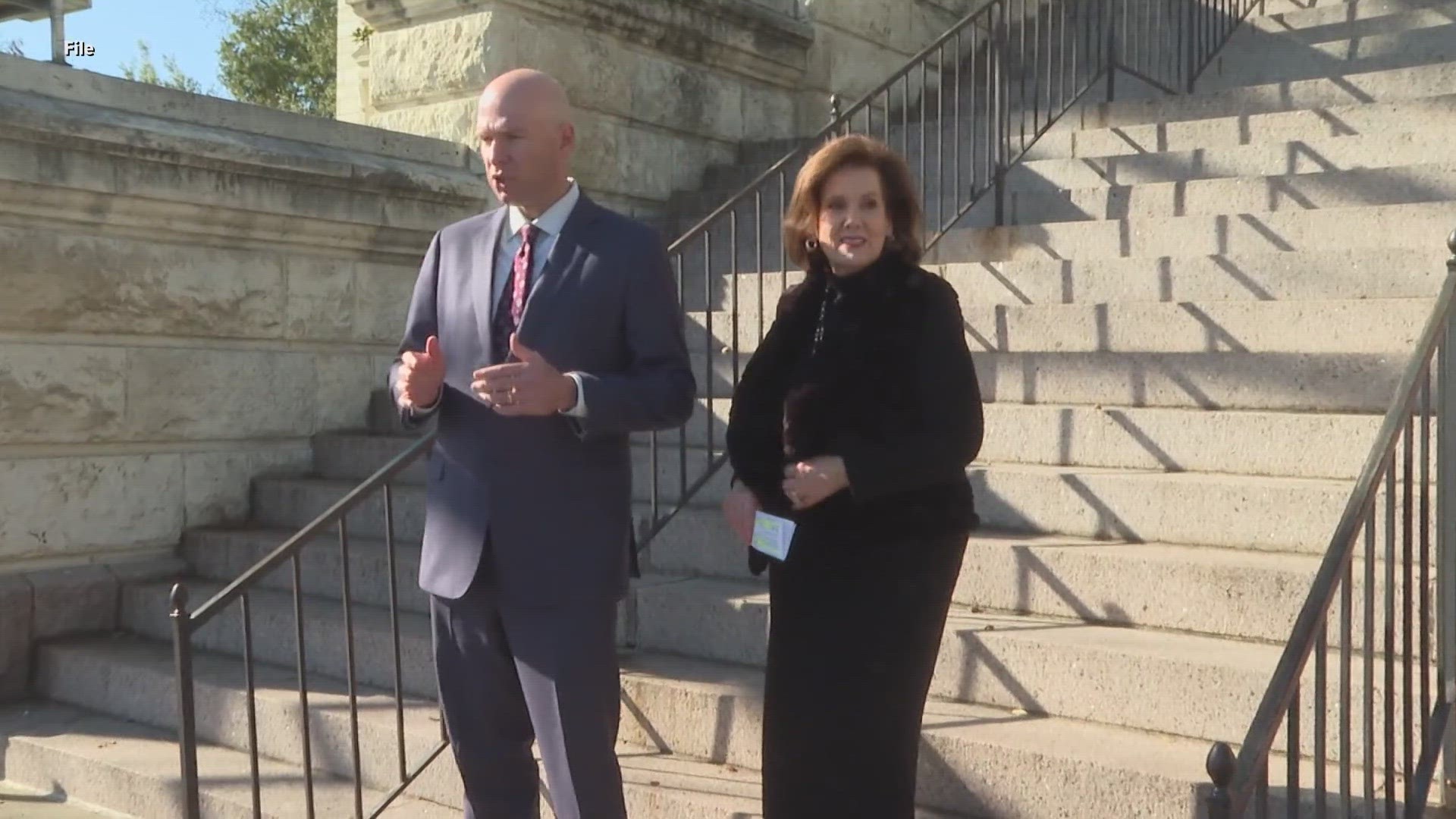TRAVIS COUNTY, Texas — The Texas Supreme Court heard oral arguments to revive a lawsuit filed by McLennan County Justice of Peace Dianne Hensley over religious rights on Wednesday, Oct. 25.
Hensley made national headlines in 2019 for refusing to officiate same-sex marriages because of her Christian beliefs. A judicial ethics commission questioned Hensley’s impartiality and issued a sanction.
Hensley sued the State Commission on Judicial Conduct for violating her rights under the Texas Religious Freedom Restoration Act (TRFRA) after the Commission issued a public warning against Hensley for refusing to officiate same-sex marriage. The lawsuit sought $10,000 in damages, the maximum allowed under the TRFRA, for loss of income.
A district appeals court dismissed the lawsuit in 2021 because Hensley did not appeal the warning through a special court of review and the commission and its members have sovereign immunity.
The commission argued Hensley attempted to “collaterally attack a judicial disciplinary order” by filing suit after the sanction. The district court found Hensley went above jurisdictional grounds by filing the lawsuit.
Hensley’s legal team filed a petition for review by the State Supreme Court, arguing that TRFRA explicitly waives sovereign immunity and Hensley was not required to appeal the warning to a special court of review.
According to the petition of review filed by Hensley’s legal counsel, Hensley sought a judicial declaration to exempt herself from officiating same-sex weddings and damages for lost income. The plaintiff’s team argued the special court of review could only reverse the Commission’s sanction and not guarantee Hensley's desired outcomes.
The attorney representing the plaintiff, Jonathan F. Mitchell, said the process of appealing the sanction was useless to Hensley’s case because she would not receive an exemption from marrying gay couples or be awarded for lost income.
Mitchell explained Hensley was not seeking a remedy from the Supreme Court or to alter the commission’s warning. However, a few of the Justices questioned why Hensley’s legal team would not first appeal the warning before filing a lawsuit against the commission.
“Your seeking past money damages seems a little inconsistent with the idea there’s no problem with challenging the sanction,” Justice Evan Young said. “If you challenged the section in the court of special review and won, she could have resumed the weddings and been getting the important money you've talked about.”
Douglas S. Lang represented the commission before the State’s Supreme Court.
Justice Jimmy Blacklock questioned the Commission on how refusing to perform same-sex marriages would imply bias.
Lang argued that refusing to officiate for only some couples, and not others, is discrimination. He also pointed to evidence that Hensley publicly voiced her reasoning for not performing same-sex weddings.
Justices also questioned Lang on how the commission would respond to similar cases in light of a recent Supreme Court ruling, 303 Creative v. Elenis, which declares the First Amendment protects a Colorado web designer from being compelled by the state to offer creative services that she disagrees with.
Lang argued judges are held to a different standard and Hensley took an oath to uphold the law. Lang rebuked the claims by the plaintiff that the commission is threatening every judicial officer in Texas with disciplinary sanctions.
According to the petition of review, Hensley briefly stopped officiating all weddings in 2015 after Obergefell v. Hodges, the historic Supreme Court ruling permitting same-sex marriages. She resumed after a year because there were no judges or Justices of the Peace in McLennan County performing low-cost weddings because of Obergefell, according to the court documents.
A year after Obergefell, Hensley would only officiate marriages consistent with her Christian faith and would refer couples to other officiants who offer their services to couples of the same sex.
There’s no set date for when the Texas Supreme Court will issue a ruling on whether Hensley’s lawsuit can proceed. A ruling could come down as soon as Friday, Oct. 27.
More from 6 News:

